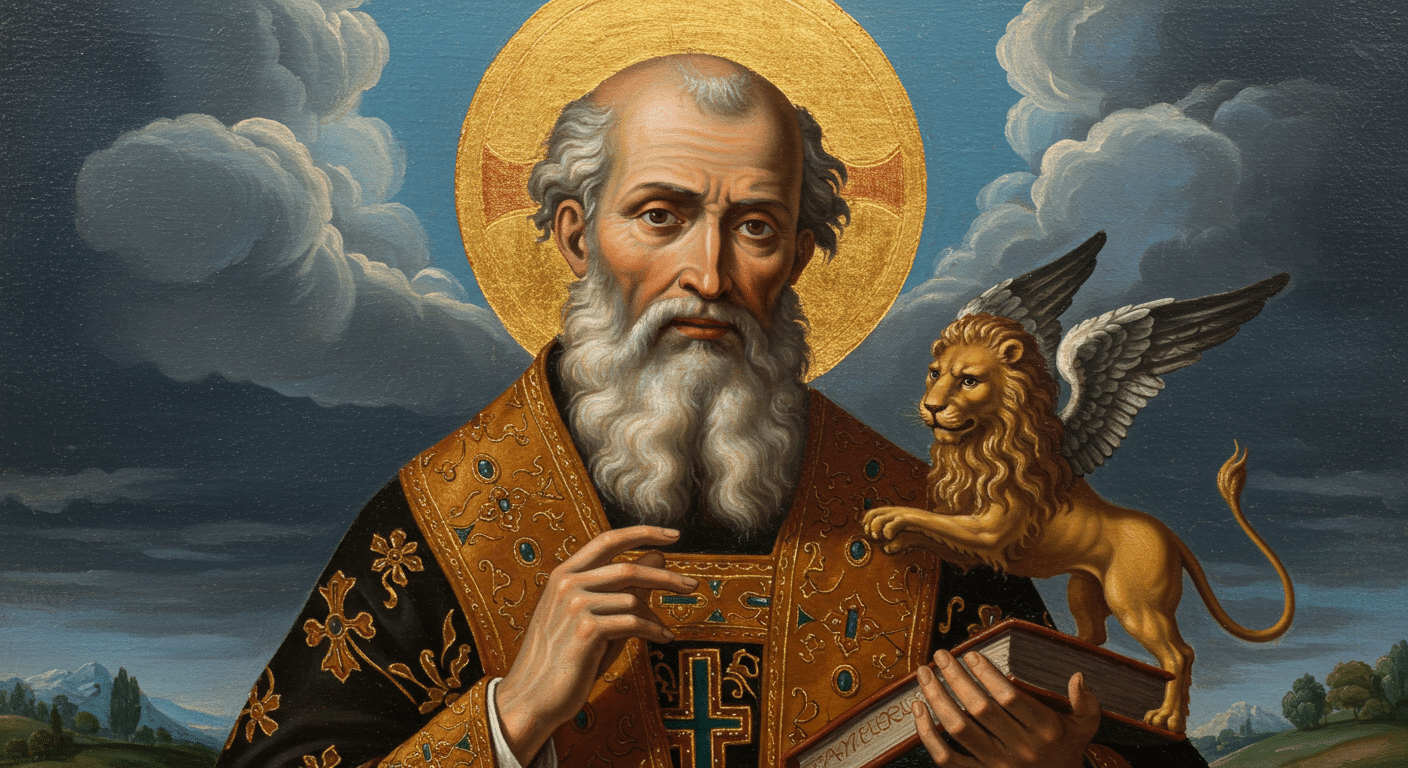Mark the Evangelist, also known as John Mark, is a pivotal figure in early Christianity, revered for his role as the author of the second Gospel in the New Testament. His contributions and legacy resonate deeply within the Christian faith, particularly as they relate to his missionary endeavors and close ties with key apostles.
As we delve into the life and impact of Mark the Evangelist, we will explore various aspects of his existence and the significant legacy he left behind.
Who was Mark the Evangelist?
Mark the Evangelist is widely recognized as one of the four Gospel writers. Born in the first century, he was the son of Mary, a prominent early Christian, and his home in Jerusalem served as a gathering place for believers. His relationship with notable figures like Peter is often highlighted, as he is believed to have closely followed and documented Peter’s teachings.
In the early days of Christianity, Mark traveled with Paul and Barnabas on missionary journeys. However, their partnership faced challenges, leading to a split when Mark chose to return to Jerusalem. This incident reflects the complexities of early Christian relationships, showcasing both conflicts and reconciliations.
Mark eventually became a significant leader in the Christian community in Alexandria, where he established one of the first churches. His dedication to spreading the Gospel played a crucial role in shaping the faith during its formative years.
What are some interesting facts about St Mark?
St Mark is a figure surrounded by captivating stories and facts. Here are a few noteworthy details about his life:
- Author of the Gospel: Mark is credited with writing the Gospel that bears his name, emphasizing the teachings and miracles of Jesus.
- Symbol of the Evangelist: He is often depicted with a winged lion, a symbol of courage and resurrection.
- Feast Day: His feast day is celebrated on April 25, commemorating his contributions and martyrdom.
- Pseudonym: Sometimes referred to as John Mark, he is identified to distinguish him from the apostle Mark.
- Martyrdom: Tradition holds that he was martyred in Alexandria, solidifying his status as a saint in the Christian faith.
These facts not only highlight his significance in Christianity but also emphasize the enduring nature of his legacy.
When did Mark the Evangelist die?
Mark the Evangelist is believed to have died around 68 AD. His death is traditionally associated with martyrdom in Alexandria, where he faced persecution for his faith. This event marked a pivotal moment in early Christian history, as it underscored the sacrifices made by the apostles in spreading the teachings of Jesus.
The exact circumstances of his death are somewhat unclear, but it is widely accepted that he was executed for his steadfast commitment to the Christian faith. The burgeoning Christian community revered him as a martyr, and his legacy grew as a result of these sacrifices.
How did St Mark contribute to early Christianity?
Mark the Evangelist made profound contributions to early Christianity that are still felt today. His Gospel is particularly significant, as it is characterized by a sense of immediacy and action. Written for a primarily Gentile audience, it encapsulates the essence of Jesus’ teachings in a way that resonates across cultures and time.
Moreover, Mark’s missionary work laid the foundation for the establishment of Christian communities. His leadership in Alexandria was instrumental in creating a vibrant center of early Christian thought and practice. His efforts helped to spread the Christian message beyond Jewish communities and into the broader Gentile world.
Additionally, Mark’s relationship with Paul and Barnabas illustrates the dynamic nature of early Christian missions. Though their partnership faced challenges, it ultimately contributed to a broader understanding of the Gospel’s applicability to diverse audiences.
What is St Mark the patron saint of?
St Mark is recognized as the patron saint of various groups and causes. These include:
- Notaries: As a writer and communicator, he is invoked by those in the field of writing and documentation.
- Lawyers: His commitment to justice and truth makes him a patron for legal professionals.
- Venice: Given the historical connection, he is the patron saint of Venice, where his relics are believed to be housed.
- Apothecaries: He also serves as a protector for those in the pharmaceutical field.
These associations reflect the multifaceted nature of his legacy, influencing various aspects of society and culture.
What is the significance of the feast of St Mark?
The feast of St Mark, celebrated on April 25, serves as an important occasion for Christians worldwide. This celebration honors his life, contributions, and martyrdom, providing an opportunity for reflection on his impact on Christianity.
During this feast, various traditions are observed, including special church services and the reading of the Gospel of Mark. These practices foster a deeper understanding of his teachings and the significance of his role as an evangelist.
The feast also emphasizes the importance of martyrdom in the Christian faith, as Mark’s death serves as a reminder of the sacrifices made by the early apostles. It encourages believers to reflect on their commitment to faith and service, mirroring the dedication exemplified by St Mark.
How old was St Mark when he died?
While the exact age of St Mark at the time of his death is not definitively recorded, it is believed that he was likely in his 40s or 50s. This estimation takes into account the timeline of his life and the events surrounding early Christianity.
His relatively young age at the time of his martyrdom highlights the urgency and fervor of his mission. Mark’s dedication to the Christian cause despite facing persecution and ultimately giving his life illustrates the deep conviction that characterized many early Christians.
In summary, Mark the Evangelist’s life and legacy are marked by profound contributions to the foundation of Christianity. His Gospel remains vital for understanding Jesus’ teachings, and his story continues to inspire believers today. As we celebrate the feast of St Mark, we remember the significance of his life, the trials he faced, and the enduring impact of his faith.







